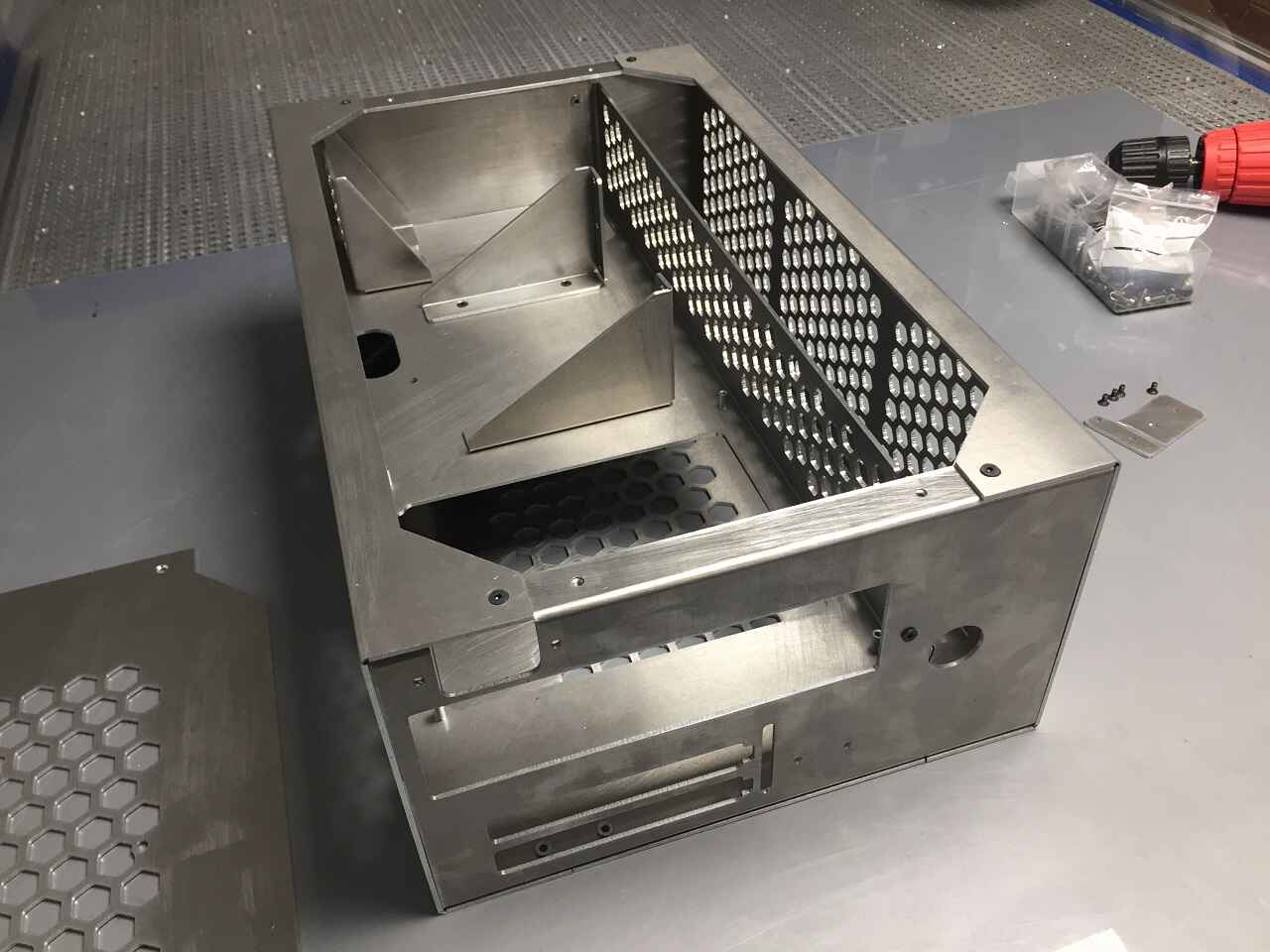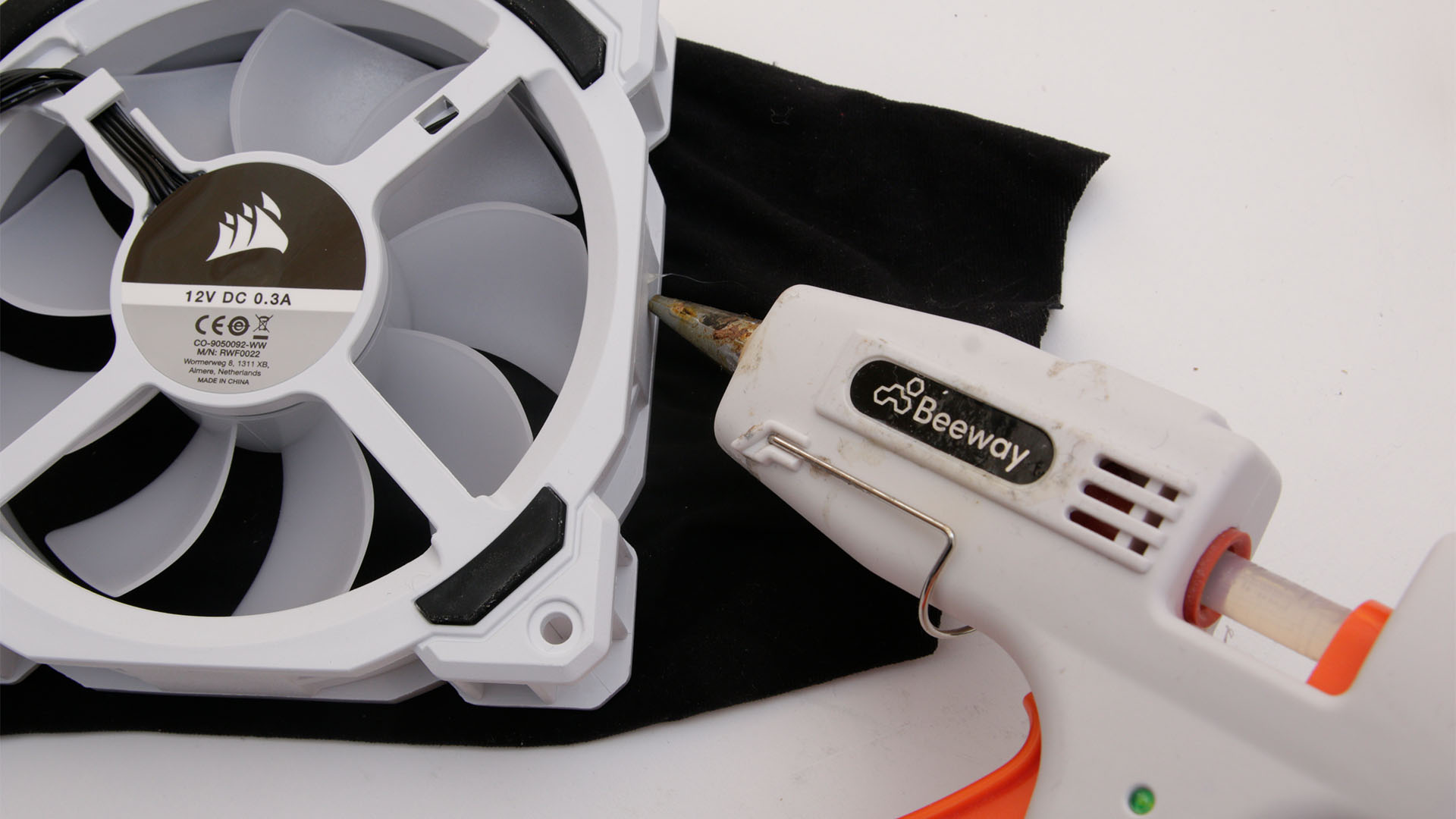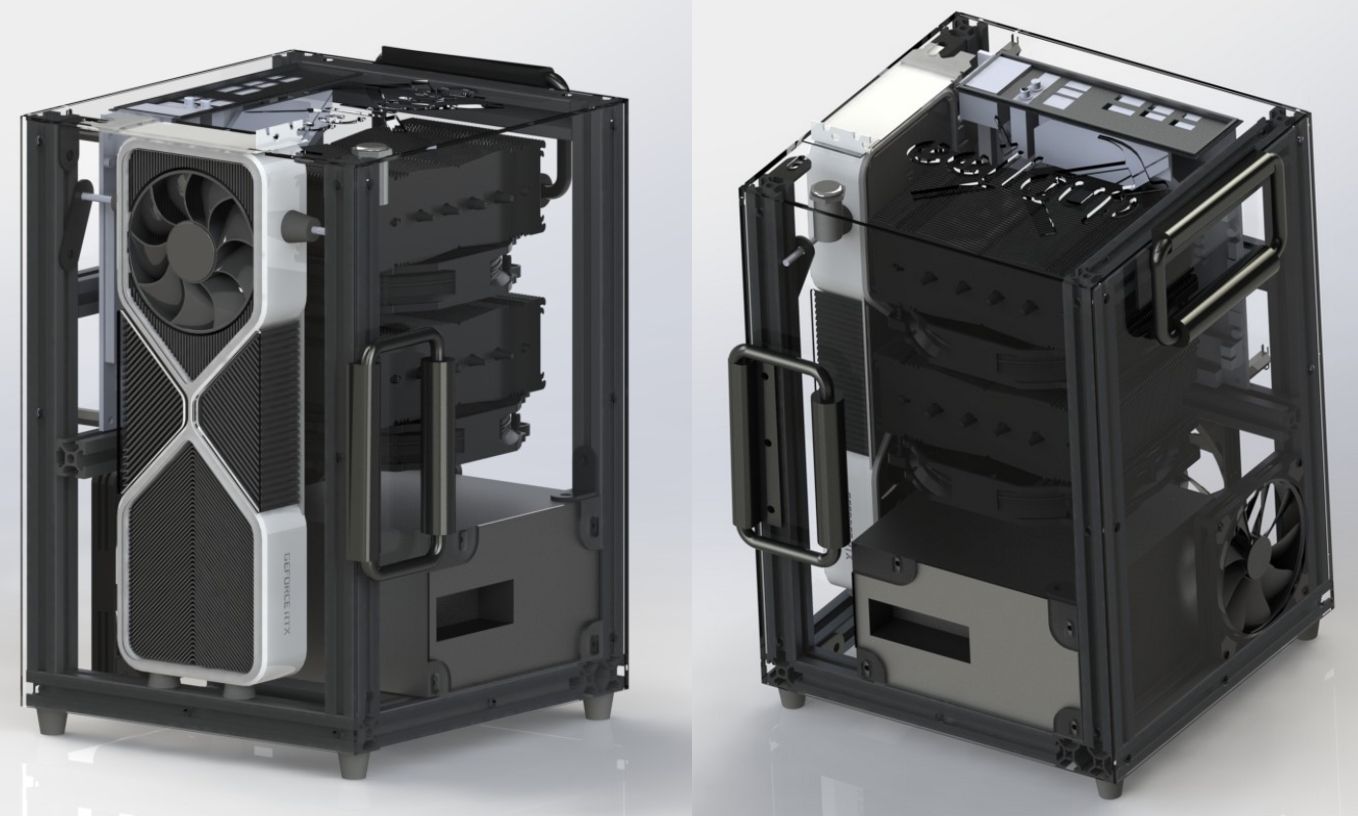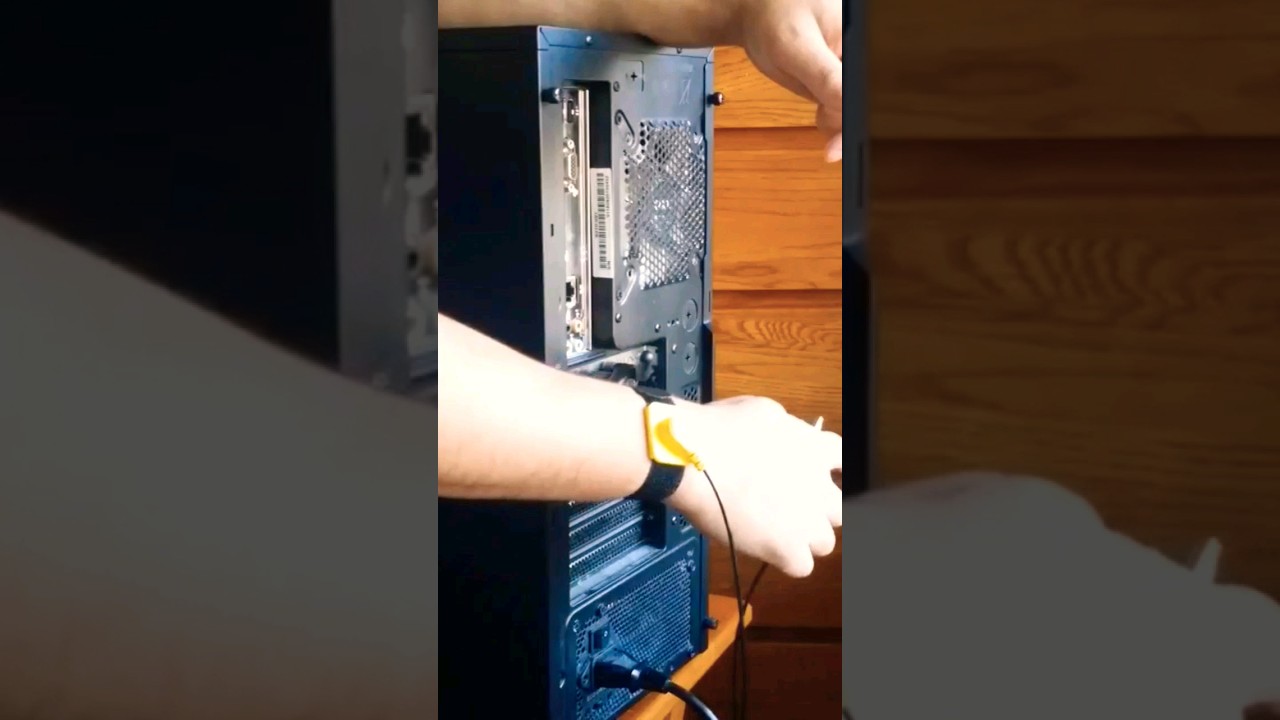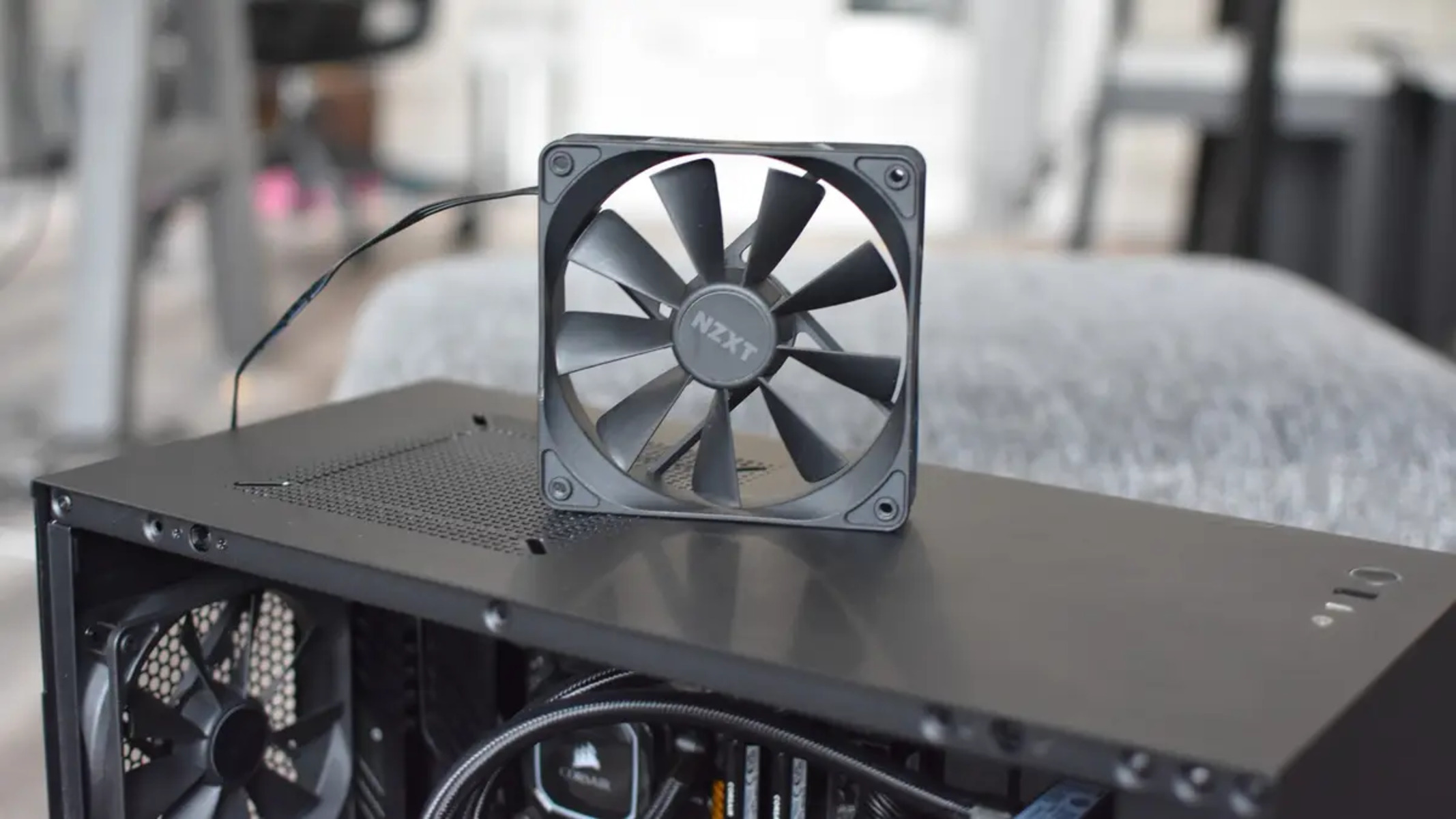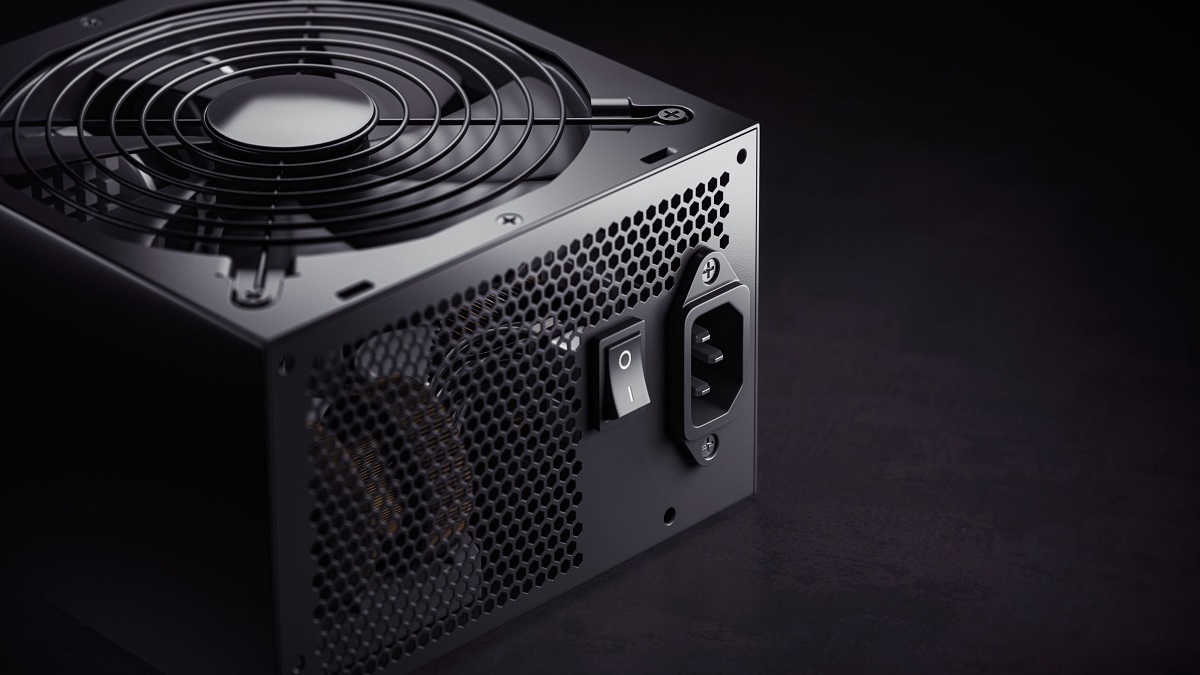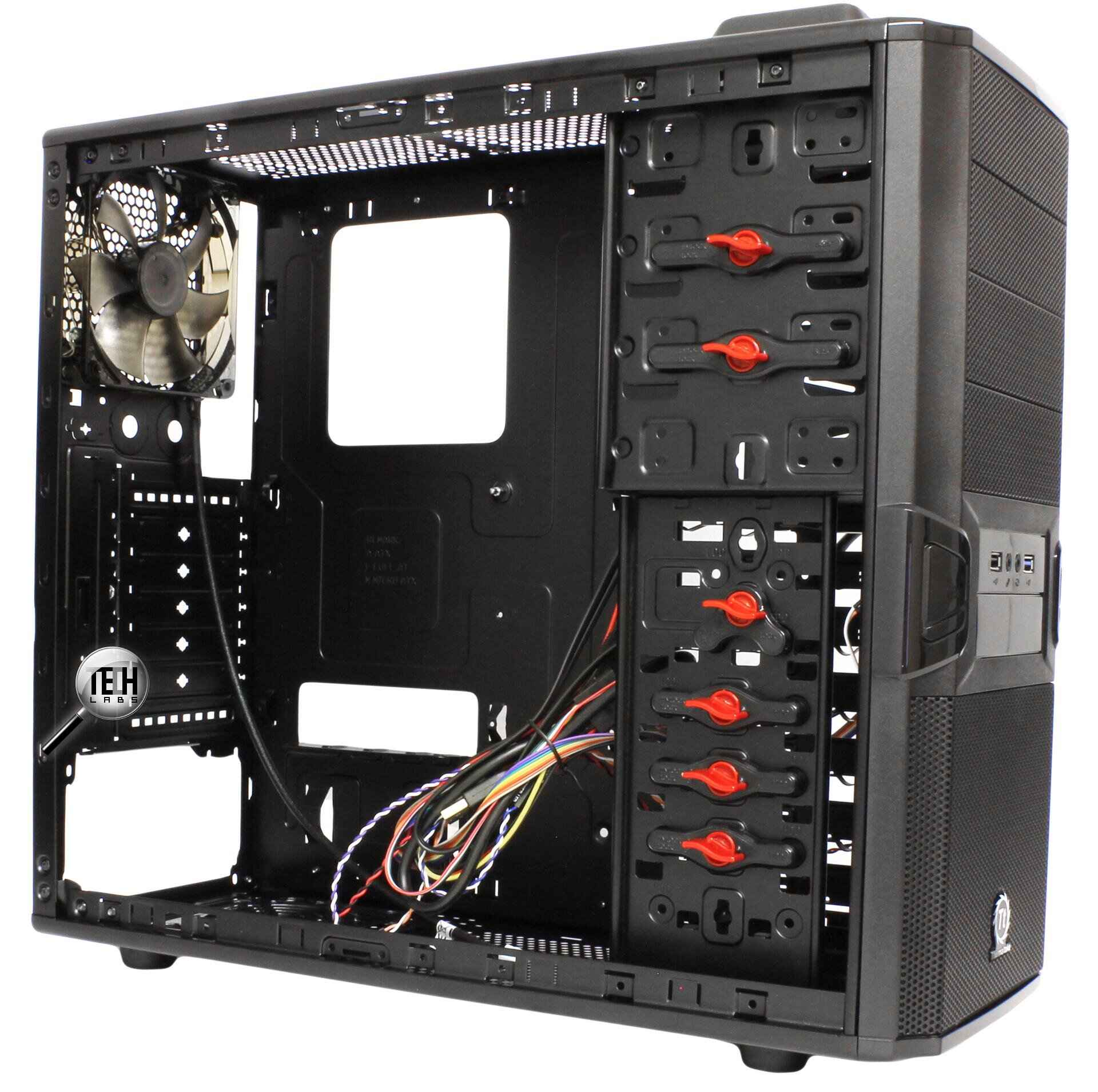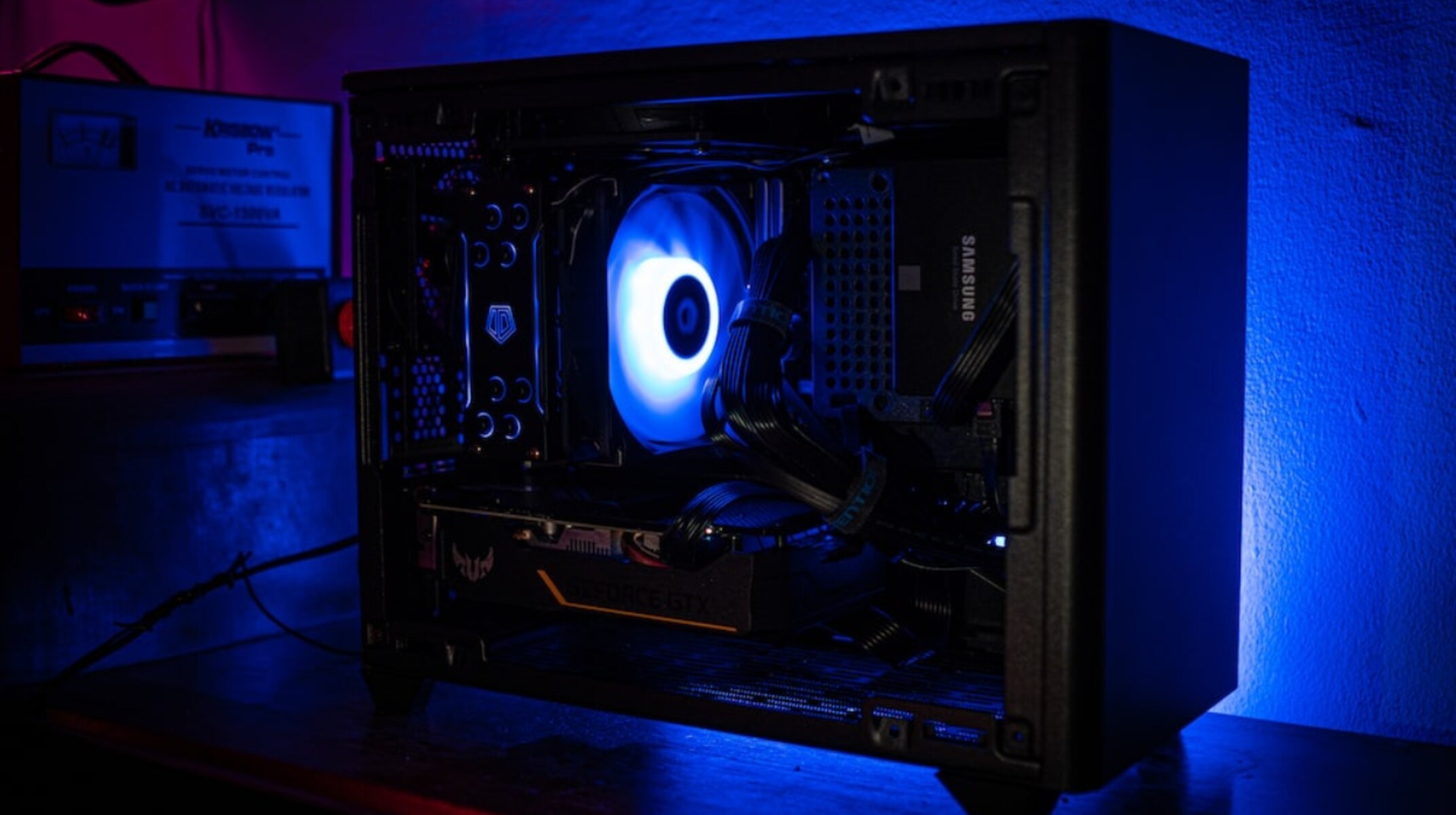Introduction
Welcome to the world of PC building! Whether you are a seasoned pro or a newbie to the world of computer building, one component that plays a crucial role in your PC’s performance and aesthetics is the PC case. The PC case not only houses all the vital components but also contributes to the overall look and feel of your setup. Among the many considerations when choosing a PC case, the material it is made of is a significant factor to be considered.
The type of material used in a PC case can impact its durability, weight, cooling capabilities, and even its noise levels. Understanding the different types of PC case metals and their characteristics can help you make an informed decision when choosing the right case for your needs. In this article, we will explore the common types of PC case metals, their impact on performance, and the factors to consider when making your selection.
So, whether you’re a gamer, a content creator, or a PC enthusiast looking to build your dream machine, let’s dive into the world of PC case metal and discover the possibilities awaiting you!
What is PC Case Metal?
PC case metal refers to the material from which the computer case is constructed. It forms the outer shell of the PC case and plays a significant role in providing structural integrity and protection for the internal components. The choice of PC case metal can impact various aspects such as durability, weight, heat dissipation, noise reduction, and aesthetics.
PC cases are available in a variety of materials, including aluminum, steel, tempered glass, and plastic or acrylic. Each material offers unique characteristics and advantages, catering to different needs and preferences of PC builders.
When choosing a PC case metal, it’s important to consider factors such as cost, durability, weight, heat dissipation, noise reduction, and aesthetics. These aspects will help determine the overall performance and satisfaction you will experience with your PC build.
Let’s explore the different types of PC case metals in more detail to understand their characteristics and benefits.
Common Types of PC Case Metal
When it comes to PC case metals, several options are available in the market. Each type of metal has its own unique characteristics and can significantly impact the performance and aesthetics of your PC build. Let’s take a closer look at some of the most common types of PC case metals:
- Aluminum: Aluminum is a popular choice for PC cases due to its lightweight yet durable nature. It offers excellent heat dissipation properties, allowing for efficient cooling of the internal components. Additionally, aluminum cases often feature sleek and modern designs, making them visually appealing for enthusiasts.
- Steel: Steel is known for its robustness and durability. PC cases made of steel provide excellent protection for the internal components, making them ideal for transportation and rough handling. Steel cases are generally heavier than aluminum cases but offer better noise reduction due to their thicker construction.
- Tempered Glass: Tempered glass has gained popularity in recent years due to its ability to showcase the internal components of a PC build. This material provides a visually stunning and modern aesthetic. While tempered glass cases are known for their elegant look, they might be heavier and more prone to scratches compared to other materials.
- Plastic or Acrylic: Plastic or acrylic cases are often budget-friendly options. They are lightweight and easily customizable, with various color options available. However, they may not offer the same level of durability and heat dissipation as aluminum or steel cases.
It’s important to consider your specific needs and priorities when selecting a PC case metal. Factors such as budget, desired aesthetics, transportation requirements, and cooling performance should all be taken into account. Evaluating these factors will help you determine the best PC case metal for your build and ensure a successful and enjoyable PC building experience.
Aluminum
Aluminum is a lightweight yet durable metal that is widely used in PC case construction. It offers a range of advantages that make it a popular choice among PC builders. Let’s delve deeper into the features and benefits of aluminum PC cases:
1. Lightweight and Portable: One of the key advantages of aluminum PC cases is their lightweight nature. Aluminum is significantly lighter than other materials like steel, making aluminum cases easier to transport and maneuver. This is especially advantageous for LAN party enthusiasts or those who frequently move their PCs.
2. Excellent Heat Dissipation: Aluminum is a great conductor of heat. PC cases made of aluminum have superior heat dissipation properties compared to other materials. This allows for better airflow within the case and helps to keep the internal components cool. As a result, aluminum cases are a popular choice for high-performance gaming builds or systems that require extensive cooling.
3. Sleek and Modern Designs: Aluminum PC cases are often praised for their sleek and modern aesthetics. The material lends itself well to stylish and minimalist designs, making aluminum cases visually appealing. They are available in a wide range of finishes, including brushed, anodized, or even tempered glass panels to showcase the internals of your build.
4. Enhanced Durability: While aluminum is lighter than steel, it still offers a good level of durability. It provides adequate protection for the internal components from external shocks or accidental bumps. Aluminum cases are designed to withstand wear and tear, ensuring long-lasting performance.
5. Potential for Noise Reduction: The inherent properties of aluminum contribute to noise reduction within the PC case. Its natural dampening characteristics help to absorb vibrations and reduce the overall noise level generated by the components. This can result in a quieter and more enjoyable user experience.
In summary, aluminum PC cases are favored by many due to their lightweight nature, excellent heat dissipation, sleek designs, enhanced durability, and potential for noise reduction. However, it’s worth noting that aluminum cases tend to be more expensive compared to other materials. Therefore, if budget is a consideration, it’s important to weigh the benefits against the cost and determine if aluminum is the right choice for your specific needs and preferences.
Steel
Steel is a popular choice for PC case construction due to its durability and protective qualities. While steel cases may be heavier compared to other materials, they offer a range of advantages that make them a preferred option for many PC builders. Let’s explore the features and benefits of steel PC cases:
1. Robustness and Durability: One of the biggest advantages of steel PC cases is their exceptional durability. Steel is a strong and rugged material that provides excellent protection for the internal components of your PC. This makes steel cases ideal for users who frequently transport their systems or require extra protection for their valuable hardware.
2. Reduced Noise Levels: Steel cases are often praised for their noise reduction capabilities. The thicker construction of steel absorbs vibrations and reduces the overall noise generated by the internal components. This results in a quieter environment, making steel cases a popular choice for those who prioritize a silent computing experience.
3. Enhanced Stability: Steel cases offer superior stability due to their weight and construction. The added weight provides a solid foundation for the PC, reducing the risk of accidental tipping or movement. This is particularly important for users who have multiple heavy components or require stability in their setup.
4. Improved Thermal Efficiency: While steel may not have the same heat transfer capabilities as materials like aluminum, proper design and ventilation can still ensure efficient heat dissipation within a steel case. Many steel cases include strategically placed airflow vents and fan mounts to facilitate proper cooling of the internal components.
5. Budget-Friendly Option: Steel cases are often more cost-effective compared to their aluminum or tempered glass counterparts. This makes them an attractive option for users who are on a tighter budget or prefer to allocate their funds towards other components in their build.
Overall, steel PC cases offer excellent durability, noise reduction, stability, and affordability. While they may be heavier compared to other materials, their robustness and protective qualities make them a reliable choice for any PC builder. Consider your specific requirements, budget, and preferences when deciding if a steel case is the right fit for your build.
Tempered Glass
Tempered glass has become increasingly popular in PC case construction due to its ability to provide a sleek and modern aesthetic. PC cases with tempered glass panels offer a range of benefits that make them an attractive choice for many builders. Let’s explore the features and advantages of tempered glass PC cases:
1. Visual Appeal: Tempered glass PC cases are highly sought after for their visual appeal. The transparent panels allow for an unobstructed view of the internal components, showcasing the intricate details of your PC build. This is especially appealing for enthusiasts who enjoy RGB lighting or custom water-cooling setups.
2. Stunning Aesthetics: The sleek and modern aesthetic of tempered glass cases adds a touch of elegance to any setup. The clean lines and reflective properties of the glass panels create a premium and high-end look that enhances the overall visual experience of your PC.
3. Durability: Tempered glass is significantly stronger than regular glass, making it more resistant to impacts and less prone to shattering. This ensures the safety of your components and provides peace of mind when transporting or moving your PC.
4. Noise Reduction: Tempered glass panels have natural sound-dampening properties that help reduce noise levels. The thickness of the glass helps to absorb vibrations generated by the internal components, resulting in a quieter PC operation.
5. Customization Potential: Tempered glass panels offer customization opportunities for PC builders. They can be tinted or treated to provide various levels of opacity or transparency, allowing you to create a personalized look that matches your unique style and preferences.
6. Compatibility with RGB Lighting: The transparency of tempered glass panels makes them an ideal choice for showcasing RGB lighting setups. Whether it’s RGB fans, LED strips, or liquid cooling solutions, the glass panels allow the vibrant colors and effects to shine through, enhancing the overall visual impact of your build.
While tempered glass PC cases provide stunning aesthetics and customization potential, it’s important to note that they are generally heavier than cases made of other materials. Additionally, the glass panels can be more susceptible to scratches and fingerprints, requiring more regular maintenance and cleaning to keep them looking pristine.
Consider your preferences for visual aesthetics, compatibility with RGB lighting, and the additional weight associated with tempered glass when deciding if it’s the right choice for your PC build.
Plastic or Acrylic
Plastic or acrylic PC cases are popular options, particularly for those on a budget or looking for a lightweight and customizable solution. While they may not offer the same level of durability as other materials, they do have some unique advantages that make them an attractive choice for certain PC builders. Let’s explore the features and benefits of plastic or acrylic PC cases:
1. Affordability: Plastic or acrylic PC cases are generally more budget-friendly compared to cases made of aluminum or tempered glass. This makes them a cost-effective option, especially for users who want to allocate their budget towards other components.
2. Light Weight: Plastic or acrylic cases are lightweight, making them easy to transport and maneuver. This is particularly advantageous for LAN party enthusiasts or users who need a portable setup.
3. Customizability: Plastic or acrylic cases offer excellent customization potential. They can be easily molded and shaped, allowing for unique designs and modifications. Additionally, these cases are available in a wide range of colors, making it easier to match your PC case with your desired theme or aesthetic.
4. Decent Heat Dissipation: While plastic or acrylic may not provide the same level of heat dissipation as materials like aluminum or steel, newer designs often incorporate ventilation and fan mounting options to optimize airflow. This helps to maintain proper cooling and prevent overheating of the internal components.
5. Transparent or Opaque Options: Plastic or acrylic cases can be manufactured with transparent or opaque panels. Transparent panels allow for a glimpse inside the case and are ideal for showcasing RGB lighting setups or custom components. Opaque panels, on the other hand, provide a sleek and clean look, hiding the internal components and cables for a more minimalist aesthetic.
It’s important to note that plastic or acrylic PC cases may have a shorter lifespan compared to other materials. They are more vulnerable to scratches and damages, requiring careful handling and maintenance. Additionally, their heat dissipation capabilities may not be as efficient as other materials, so it’s important to ensure proper airflow and cooling within the case.
Consider your budget, desired level of customization, and maintenance requirements when deciding if a plastic or acrylic PC case is the right choice for your build. If you’re looking for an affordable and lightweight option with customization potential, then a plastic or acrylic case may be the perfect fit for you.
Impact of PC Case Metal on Performance
The choice of PC case metal can have a notable impact on the overall performance of your PC build. While it may not directly affect the performance of individual components, it plays a crucial role in several key areas that can affect the overall system performance. Let’s explore the impact of PC case metal on performance:
1. Heat Dissipation: The ability of the PC case to dissipate heat generated by the internal components is vital for optimal performance. Materials like aluminum and steel have excellent heat conductivity, allowing for efficient heat dissipation. This helps to keep the temperature of the system within safe limits and prevents thermal throttling, which can negatively impact performance.
2. Airflow Management: PC cases made of materials such as aluminum or steel often come with well-designed airflow management systems. They feature strategically placed air vents, fan mounts, and other ventilation features to ensure proper airflow within the case. Effective airflow management can help improve cooling performance, which in turn enhances the overall performance and longevity of the components.
3. Noise Reduction: The choice of PC case metal can also impact the noise levels generated by the internal components. Materials like steel have better sound-dampening properties compared to materials like plastic or acrylic. A well-insulated case can reduce noise vibrations and minimize noise pollution, creating a quieter and more enjoyable computing experience.
4. EMI (Electromagnetic Interference) Shielding: Metal PC cases, especially those made of steel, offer better EMI shielding compared to non-metal cases. EMI can interfere with sensitive components and cause performance issues. Metal cases provide a layer of protection by blocking or reducing electromagnetic interference, ensuring optimal performance and data integrity.
5. Rigidity and Protection: The structural integrity of the PC case is essential for protecting the delicate internal components. Sturdy materials like steel offer better rigidity and protection against accidental bumps or transportation hazards. This is particularly important for users who frequently move their PCs or require a robust defense against potential damages.
It’s important to consider your specific needs and priorities when selecting a PC case metal to ensure optimal performance. Factors such as heat dissipation, airflow management, noise reduction, EMI shielding, and protection should all be taken into account. By choosing a PC case with the right metal for your needs, you can create a system that performs reliably and efficiently.
Factors to Consider in Choosing PC Case Metal
When choosing a PC case, the material it is made of is an important consideration. The PC case metal affects various aspects such as durability, weight, heat dissipation, noise reduction, and aesthetics. Considering these factors will help you make an informed decision when selecting the right PC case metal for your needs. Here are some key factors to consider:
1. Cost: Budget is often a crucial consideration when building a PC. Different PC case metals vary in price. Aluminum and tempered glass cases tend to be more expensive, while plastic or acrylic cases are generally more budget-friendly. Consider your budget and allocate your funds accordingly.
2. Durability: The durability of the PC case is essential for protecting the internal components and ensuring a long lifespan. Metals like aluminum and steel offer better durability and protection compared to plastic or acrylic. If you need a case that can withstand transportation or rough handling, opt for a more durable metal.
3. Weight: The weight of the PC case can impact portability and ease of installation. Aluminum and plastic/acrylic cases are lighter, making them suitable for frequent transportation. On the other hand, steel cases offer greater stability and protection but are heavier to carry.
4. Heat Dissipation: Efficient heat dissipation is essential to maintain optimal performance and prevent thermal throttling. Metals like aluminum and steel are good conductors of heat and offer better heat dissipation compared to plastic or acrylic. Consider your cooling needs and choose a metal that can help keep the temperatures under control.
5. Noise Reduction: The choice of PC case metal can impact noise levels. Materials with better sound-dampening properties, such as steel, can help reduce noise vibrations generated by the internal components. If a quiet computing experience is important to you, opt for a metal that offers good noise reduction.
6. Aesthetics: The visual appeal of the PC case is also an important factor to consider. Aluminum and tempered glass cases are often favored for their sleek and modern designs. Plastic or acrylic cases offer more customization options and a wider range of color choices. Choose a metal that complements your desired aesthetics and matches your overall setup.
By considering factors such as cost, durability, weight, heat dissipation, noise reduction, and aesthetics, you can select the right PC case metal that meets your specific requirements and enhances your overall PC building experience.
Cost
Cost is an important factor to consider when choosing a PC case metal. The price of PC cases can vary significantly depending on the material used. Understanding the cost implications of different PC case metals will help you make a decision that aligns with your budget. Here’s what you need to know about the cost factor:
1. Aluminum: Aluminum PC cases tend to be on the higher end of the price spectrum. The lightweight nature, superior heat dissipation capabilities, and sleek designs contribute to their higher cost. Aluminum cases are often favored by enthusiasts or those looking for a premium, high-performance solution.
2. Steel: Steel PC cases generally offer a more affordable option compared to aluminum. While they may lack the same level of heat dissipation as aluminum, steel cases are valued for their durability, noise reduction capabilities, and enhanced stability. They are a popular choice for users on a tighter budget or those seeking a sturdy and reliable option.
3. Tempered Glass: Tempered glass PC cases typically fall into the mid-range to higher price range. The stunning aesthetics and modern appeal of tempered glass contribute to its higher cost. These cases are often sought after by users who prioritize visual excellence and want to showcase their hardware with a touch of elegance.
4. Plastic or Acrylic: Plastic or acrylic PC cases are generally the most budget-friendly option. They offer a cost-effective solution for users who want a lightweight and customizable case without breaking the bank. While they may not provide the same level of durability or heat dissipation as other materials, plastic or acrylic cases are a popular choice for those on a tighter budget or for DIY enthusiasts who love to personalize their builds.
When considering the cost of a PC case, it’s essential to evaluate your budget and the features that are most important to you. Determine the level of heat dissipation, durability, noise reduction, and aesthetics you require and find a PC case metal that strikes a balance between cost and desired features.
Remember, while the initial cost of the PC case is an important consideration, it’s also essential to think about the long-term value and satisfaction it will bring to your PC build. Investing in a high-quality case that meets your needs and preferences can contribute to the overall performance and enjoyment of your system.
Durability
Durability is a critical factor to consider when selecting a PC case metal. The durability of the case ensures the protection and longevity of the internal components, providing peace of mind and preventing potential damages. Understanding the durability of different PC case metals will help you make an informed decision. Here’s what you need to know about durability:
1. Aluminum: Aluminum PC cases offer a good balance between durability and weight. They are generally sturdy and can withstand everyday handling and transportation. Aluminum is resistant to corrosion, which further enhances its longevity. However, it’s important to note that aluminum may not provide the same level of impact protection as steel.
2. Steel: Steel PC cases are well-known for their exceptional durability and sturdiness. They offer superior protection for the internal components, making them ideal for users who frequently transport their PCs or require extra security. Steel cases are less susceptible to dents, scratches, or damages caused by external forces, ensuring long-lasting performance.
3. Tempered Glass: Tempered glass PC cases, while visually appealing, are generally less durable compared to metal cases. The glass panels can be more prone to cracks or shattering if mishandled or subjected to significant impacts. However, tempered glass is designed to be stronger than regular glass and has better resistance to scratches and daily wear.
4. Plastic or Acrylic: Plastic or acrylic PC cases are lightweight and offer decent durability. While they may not provide the same level of impact or external protection as metal cases, they can endure regular handling and provide adequate protection against dust and minor damages. However, they may be more susceptible to scratches and can be less sturdy compared to metal cases.
When choosing a PC case based on durability, consider your specific needs and usage patterns. If you require a case that can withstand frequent transportation, opt for a metal case like aluminum or steel. If durability is not a primary concern and you prioritize other factors like affordability or customization, plastic or acrylic cases might be suitable for your needs.
Additionally, proper handling and maintenance are important for maintaining the durability of the PC case, regardless of the material used. Regularly cleaning and avoiding unnecessary stress or impacts can contribute to the longevity of the case and ensure the protection of your valuable components.
Ultimately, selecting a PC case that offers the appropriate level of durability for your usage scenario will provide the necessary protection for your components and ensure a reliable and long-lasting PC build.
Weight
The weight of a PC case is an important consideration when building a computer. The weight of the case impacts portability, ease of installation, and overall convenience. Different PC case metals have varying weights, and understanding the implications of weight will help you make an informed decision. Here’s what you need to know about the weight factor:
1. Aluminum: Aluminum PC cases are known for their lightweight nature. This makes them easy to transport and maneuver. Their reduced weight is particularly beneficial for users who frequently attend LAN parties or need a portable setup. Additionally, the lighter weight facilitates easier installation and makes it more convenient to handle and work with the components.
2. Steel: Steel PC cases are generally heavier compared to aluminum cases. The added weight provides greater stability and durability. However, it also makes them less ideal for users who require a lightweight and portable solution. Steel cases are typically preferred by those who prioritize robustness and tougher protection for their components.
3. Tempered Glass: Tempered glass PC cases are usually heavier than their non-glass counterparts due to the added weight of the glass panels. This weight can impact portability and installation. It’s important to consider whether the visual appeal and aesthetics of a tempered glass case outweigh the challenge of its weight in your specific use case.
4. Plastic or Acrylic: Plastic or acrylic PC cases are generally lightweight. This makes them easy to move and handle during installation or when reconfiguring the system. The reduced weight can be advantageous for users who prioritize easy portability and maneuverability. However, it’s worth noting that they may not offer the same level of protection or durability as metal cases.
Choosing the appropriate case weight depends on your specific needs and preferences. If portability and ease of installation are essential, consider lighter materials like aluminum or plastic/acrylic. However, if you prioritize stability and durability over portability, steel or tempered glass cases might be a more suitable choice.
It’s important to strike a balance between weight and other factors, such as durability, cooling performance, and aesthetics. Assess your requirements and the intended use of your PC to determine the optimal weight for your needs.
Remember, regardless of the weight of the PC case, it’s imperative to handle and transport it carefully to avoid any unnecessary stress or potential damage to the components inside.
Heat Dissipation
Heat dissipation is a crucial aspect of PC performance and the overall longevity of the components. The PC case metal plays a significant role in heat management, as different materials have varying heat conductivity properties. Understanding how PC case metal affects heat dissipation will help you make an informed decision. Here’s what you need to know about heat dissipation:
1. Aluminum: Aluminum PC cases are known for their excellent heat dissipation capabilities. Aluminum is a good conductor of heat, allowing it to efficiently transfer heat away from the internal components. This results in lower operating temperatures, which can promote better performance, stability, and longevity of the hardware.
2. Steel: Steel PC cases generally have slightly less heat conductivity compared to aluminum. However, they can still facilitate adequate heat dissipation when designed with proper ventilation and airflow management. Many steel cases incorporate strategically placed vents, fan mounts, and mesh panels to optimize cooling and maintain optimal temperatures within the case.
3. Tempered Glass: Tempered glass PC cases do not have inherent heat conductivity properties like metals. However, their impact on heat dissipation can vary depending on the design and ventilation options. Tempered glass cases can still promote adequate airflow and cooling if they are equipped with well-placed vents and proper fan configurations to facilitate the expulsion of hot air.
4. Plastic or Acrylic: Plastic or acrylic PC cases generally have limited heat dissipation capabilities compared to metal cases. These materials do not conduct heat as effectively, and without proper ventilation and airflow management, heat buildup can be a concern. However, many plastic or acrylic cases feature ventilation slots or fan mounts that aid in heat dissipation to some extent.
When considering heat dissipation, it’s important to assess the cooling requirements of your specific components and the desired performance level. If you plan on building a high-performance PC or overclocking your components, choosing a PC case material with superior heat conductivity like aluminum might be beneficial. If you prioritize aesthetics like tempered glass, ensure that the case is equipped with adequate ventilation options to dissipate heat efficiently.
Regardless of the PC case metal, it’s crucial to prioritize proper airflow management within the case. This includes utilizing case fans, CPU coolers, and proper cable management to promote unobstructed airflow. It’s also recommended to monitor temperatures and ensure that they remain within safe limits for optimal performance.
By selecting a PC case metal that promotes efficient heat dissipation and implementing proper cooling techniques, you can maintain lower temperatures, increase system stability, and prolong the lifespan of your components.
Noise Reduction
Noise reduction is an important consideration for many PC builders, especially those who value a quiet and peaceful computing environment. The PC case metal can have a significant impact on noise levels generated by the internal components. Understanding how different metals contribute to noise reduction will help you make a decision that aligns with your noise preferences. Here’s what you need to know about noise reduction:
1. Aluminum: Aluminum PC cases typically offer good noise reduction properties. The material has natural sound-dampening qualities that help absorb vibrations and minimize noise generated by the internal components. This can result in a quieter computing experience, particularly when combined with other noise-reducing measures like case fans with low noise levels.
2. Steel: Steel PC cases are well-regarded for their ability to reduce noise levels. The denser and more robust construction of steel helps to dampen vibrations and minimize noise generated by the components. This can result in a quieter overall system, making steel cases a suitable choice for users who prioritize a silent computing experience.
3. Tempered Glass: Tempered glass PC cases do not directly contribute to noise reduction. However, the design and construction of the case can still play a role in noise management. Many tempered glass cases feature noise-reducing features such as sound-dampening panels, noise-isolated PSU chambers, and specialized intake and exhaust designs. These additional features help minimize vibrations and attenuate noise levels, resulting in a quieter system.
4. Plastic or Acrylic: Plastic or acrylic PC cases generally offer fewer noise reduction capabilities compared to metal cases. These materials may not possess the same inherent sound-dampening properties as aluminum or steel. However, some plastic or acrylic cases may incorporate noise-reducing features like sound-absorbing foam or specialized panel designs to help mitigate noise levels to some extent.
When prioritizing noise reduction, consider not only the PC case metal but also other noise-reducing measures such as case fans, CPU coolers, and power supply units. Proper airflow management, efficient cooling, and selecting components with lower noise levels can complement the noise reduction capabilities of the case’s metal.
It’s worth noting that while the PC case metal can contribute to noise reduction, it’s not the sole factor. The overall system configuration, fan placement, and the specific components used will also impact the noise levels. Therefore, it’s important to consider the entire system setup when aiming for a quieter computing experience.
By selecting a PC case metal that offers good noise reduction properties and implementing additional noise-reducing measures, you can create a more peaceful and enjoyable computing environment with reduced noise levels.
Aesthetics
The aesthetics of a PC case play a significant role in the overall look and feel of your computer setup. The PC case metal is an essential factor when it comes to aesthetics, as different materials offer distinct visual appeal. Understanding how different metals contribute to the overall aesthetics will help you make an informed decision that matches your desired style. Here’s what you need to know about aesthetics:
1. Aluminum: Aluminum PC cases are often favored for their sleek and modern designs. The material lends itself well to clean lines, brushed finishes, and minimalist aesthetics. The lightweight nature of aluminum allows for intricate designs and ease of customization. Aluminum cases can provide a premium and high-end look, making them an attractive choice for those who value a sophisticated and contemporary appearance.
2. Steel: Steel PC cases are known for their robust and sturdy constructions. The material lends itself well to more industrial or rugged designs. Steel cases often have a timeless appeal, with an emphasis on durability and practicality. While they may have a more traditional aesthetic compared to aluminum, steel cases offer a sense of reliability and strength that can be visually appealing to certain users.
3. Tempered Glass: Tempered glass PC cases are highly sought after for their stunning aesthetics. The transparent panels allow for an unobstructed view of the internal components, creating a visually striking and modern look. Tempered glass cases provide an opportunity to showcase intricate details, RGB lighting setups, or custom liquid cooling configurations. These cases can add a touch of elegance and sophistication to any PC build.
4. Plastic or Acrylic: Plastic or acrylic PC cases are often chosen for their wide range of color options and customization possibilities. These cases are lightweight and allow for easy modification, making them popular among DIY enthusiasts. Plastic or acrylic cases offer versatility in terms of design, as they can be molded into various shapes and sizes. They can be a great choice for users who prioritize unique and vibrant aesthetics.
When considering aesthetics, it’s important to assess your own personal style preferences and the overall theme you want to achieve for your setup. Think about the visual impact you want to create and how the PC case metal can contribute to that. Consider factors such as the case’s design, color options, and the ability to showcase your components or lighting effects.
Ultimately, the PC case metal should align with your vision for your PC build and enhance the overall aesthetics of your setup. Whether you prefer the sleekness of aluminum, the ruggedness of steel, the elegance of tempered glass, or the customization potential of plastic or acrylic, selecting the right PC case metal will help you create a visually stunning and cohesive computer setup.
Conclusion
Choosing the right PC case metal is a crucial decision that impacts both the performance and aesthetics of your computer build. Each PC case metal, whether it’s aluminum, steel, tempered glass, or plastic/acrylic, offers unique characteristics that cater to different needs and preferences.
Considerations such as cost, durability, weight, heat dissipation, noise reduction, and aesthetics should guide your decision-making process. Aluminum cases provide lightweight portability and excellent heat dissipation, while steel cases offer superior durability and noise reduction. Tempered glass cases showcase your components with elegance, and plastic/acrylic cases offer cost-effective customization options.
Remember to balance your requirements and priorities to select the PC case metal that best suits your specific needs. Whether you prioritize performance, portability, noise reduction, visual appeal, or budget, there is a PC case metal to match your objectives.
Keep in mind that the choice of PC case metal is just one component of building your dream PC setup. Other factors, such as proper airflow management, component selection, and cable management, also play a crucial role in maximizing performance and ensuring a satisfying computing experience.
By considering the impact of PC case metal in areas such as heat dissipation, noise reduction, and durability, you can make an informed decision that aligns with your preferences and requirements.
So, take your time, assess your needs, explore different options, and choose the PC case metal that will not only protect and house your components but also contribute to the overall performance and aesthetics of your computer build.







